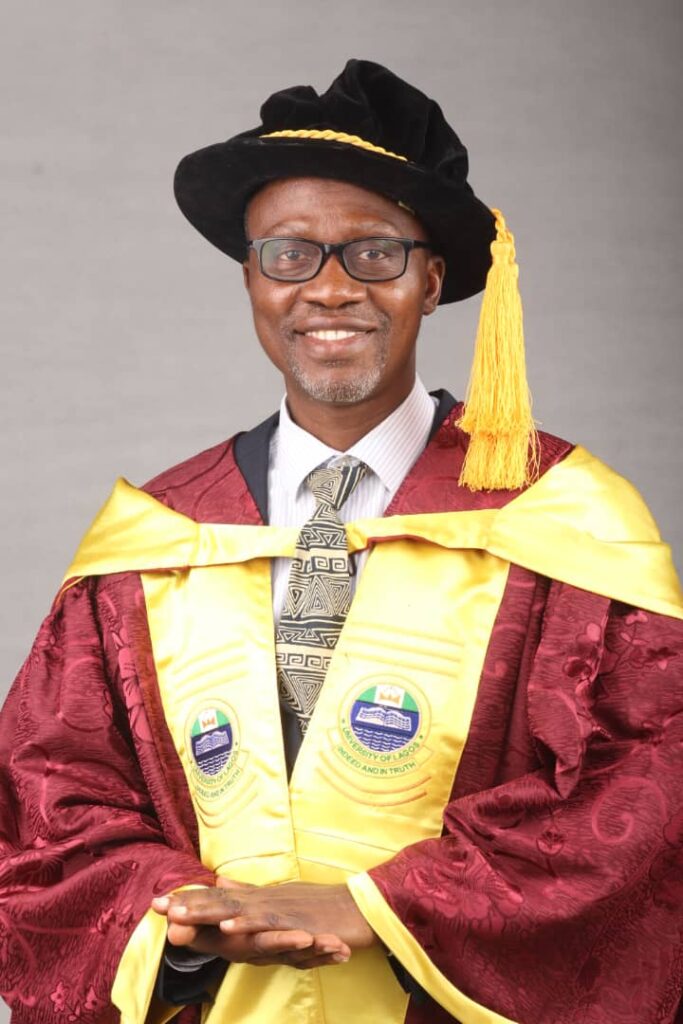Professor Ismail Adegboyega Ibraheem is an accomplished professional in journalism, communication studies, and international relations. His career is a strategic blend of scholarly expertise punctuated by years of impactful leadership across roles in many different sectors such as strategic communication, pro-poor media development, global partnerships, media and politics, and public policy.
Through the years, his career decisions have consistently been motivated by a desire for equitable outcomes for all people through pro-poor activism and academic research. Professor Ibraheem’s journey has been one of tenacity and multiple pivots.
His academic journey began at the University of Lagos, where he earned a BSc in Mass Communication (Second Class Upper) in 1990, followed by a Master of Science in Political Science in 1993. In 1996, he was awarded the prestigious British Chevening Scholarship, which enabled him to pursue a Master of Arts in Mass Communication at the University of Leicester, UK. He earned a PhD in Media and Politics at Leicester in 2004. These qualifications solidified his path as a young thought leader in the intersection of communications and governance.
From the outset of his career, Professor Ibraheem’s work history has been a carefully constructed bridge that connects the media and its responsibility (or lack of) to the masses. Starting in 1990 as a young editor in Nigeria’s Civil Liberties Organisation (CLO), he took on roles that involved overseeing the Media and Governance Programme, coordinating the Journalists’ Outreach for Human Rights (JOHR), and developing communication strategies for the organisation.
After his PhD in Media and Politics, Professor Ibraheem assumed a role as the Country Programme Director for the Chartered Institute of Public Relations, United Kingdom (CIPR) professional certificate and diploma programmes in Nigeria. In this capacity, he managed student recruitment for postgraduate programs in strategic public relations.
In 2006, he took on higher responsibilities as he was appointed the Executive Director of the Centre for African Resources Research and Development (CARRD) in the UK, where he mobilised resources for projects across education, health, and governance in Africa. In this role, he coordinated a campaign valued at $5 million for the Educational Support Initiative for Africa (ESIFA) to strengthen and support higher institutions in Africa. Professor Ibraheem’s activities in this role also extended to collaborative education programmes aimed at addressing socio-economic and gender inequalities in education, and as such he brokered a partnership with the Ogun State Government to improve educational access between 2011 and 2013. He also launched the Forum for Sustainable Democracy in Africa (FOSDA) and Healthittude, a health intervention project for African migrants living in Leicester, United Kingdom.
[READ ALSO: UDUS Campus journalists recall rewarding experiences]
In 2010, Professor Ibraheem continued on his path of enabling community empowerment by serving as the Chair of the NI4 Think Tank within the Leicester Northwest Community Forum in the United Kingdom. Under his leadership, the think tank developed an innovative participatory governance model based. Professor Ibraheem successfully engaged previously hard-to-reach individuals and groups in the East Midlands and secured their support for government empowerment initiatives.
During this time, he also served as a visiting Senior Lecturer at Coventry University, United Kingdom from 2008 to 2011, before he joined his Alma mater in Nigeria as a lecturer in the Department of Mass Communication in 2011.
In this position, he made noteworthy contributions to capacity building and professional development within the University. He served as the University Lead for the Bloomberg Media Initiative Africa, training over 600 journalists across Nigeria, Kenya, and South Africa in financial journalism.
Since joining the University of Lagos in 2011, Professor Ibraheem has consistently advanced the institution’s international reach. He rose through the ranks and was appointed Professor of Journalism and Communications Studies in 2020, and he has since served as the lead strategist for the University’s internationalisation efforts in his position as the Director of the Office of International Relations, Partnerships and Prospects. He has cultivated a dynamic environment of cross-border collaboration as he leads the brokering of partnerships driven by the Sustainable Development Goals and the African Union’s Agenda 2063. A remarkable milestone in his time in this role was the establishment of the Partnership for Change consortium, an innovative initiative uniting universities from both the Global North and Global South in pursuit of a sustainable future for African universities.
Professor Ibraheem’s scholarly impact is widely recognised through his over 80 academic publications and invited lectures on media, politics, and public policy. He is a regular contributor to international conferences, where his insights on communication strategies, development, and political discourse continue to influence peers and policymakers alike.
He has successfully supervised more than 150 master’s dissertations and 10 PhD theses, including that of the oldest PhD graduate. He has dedicated himself to nurturing emerging scholars and thought leaders in Africa’s development.
In his most recent appointment, he assumed the role of the Network Coordinator for the Afretec Network, University of Lagos in 2022. In this position, he has organised doctoral academies, hosted transnational workshops, and managed research grants totaling $500,000 annually to drive digital transformation and inclusive technological advancements in the University of Lagos, and Nigeria.
[READ ALSO: Journalists urged to maximise membership of professional networks ]
Beyond academia, Professor Ibraheem’s influence extends to the non-profit sector. He has held pivotal roles, including Chair of the Cable News Foundation’s Board of Trustees and Co-Chair of the West African Chapter of Academics Stand Against Poverty, and Uptake Director African Cities Research Consortium (ACRC) Through these platforms, he has driven initiatives that promote media literacy, human rights, and development advocacy.

